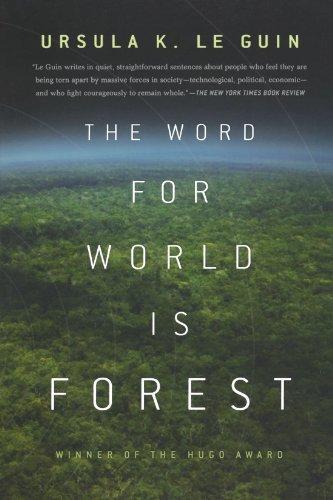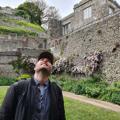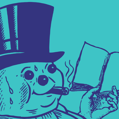Library Liberty Zed reseñó Das Wort für Welt ist Wald de Ursula K. Le Guin (Hainish Cycle, #5)
Clear Cut Story
4 estrellas
Le Guin sagt selbst im Vorwort, dass es mehr eine moralische Geschichte ist mit einer klaren Teilung in Gut und Böse. Der Titel verspricht etwas mehr Spiritualität als im Buch selber ist. Es ist eine typische Konflikstory: Technologie vs. Natur, Herrschaft vs. Kooperation, Zukunftsglauben/Progress vs. Traditionalistische soziale Systeme usw. Der Stil ist wieder hervorragend. Mein größtes Manko, dass der Titel mehr verspricht als der Text. Ich hätte viel stärker den Wald als Akteur auftreten erwartet.
Le Guin sagt selbst im Vorwort, dass es mehr eine moralische Geschichte ist mit einer klaren Teilung in Gut und Böse. Der Titel verspricht etwas mehr Spiritualität als im Buch selber ist. Es ist eine typische Konflikstory: Technologie vs. Natur, Herrschaft vs. Kooperation, Zukunftsglauben/Progress vs. Traditionalistische soziale Systeme usw. Der Stil ist wieder hervorragend. Mein größtes Manko, dass der Titel mehr verspricht als der Text. Ich hätte viel stärker den Wald als Akteur auftreten erwartet.





